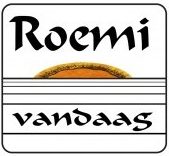This account of my personal exploration in Sufism is in response to a request from JanSietse Stilma (emeritus professor of ophthalmology) to conduct an interview with me. Following his Master’s thesis in Religious Studies at the University of Amsterdam in 2016, which focused on two Sufi groups in the city, JanSietse, through interviews with representatives of various Sufi groups in the Netherlands, aimed to compile a book titled ‘Whirling Surrender (Sufis in the Netherlands).’1 The interview with me took place on May 12, 2019, at the Sufi center on Anna Paulownastraat in The Hague. Due to delays caused by the Corona pandemic, I agreed to postpone the publication on Roemivandaag.nl for another year at his request. This year (February 6, 2021), our dear friend Ameen Carp, the center leader of the Sufi center on Anna Paulowstraat from 1960 to 2016, passed away. Therefore, I did not want to further delay this publication, as a tribute to him.
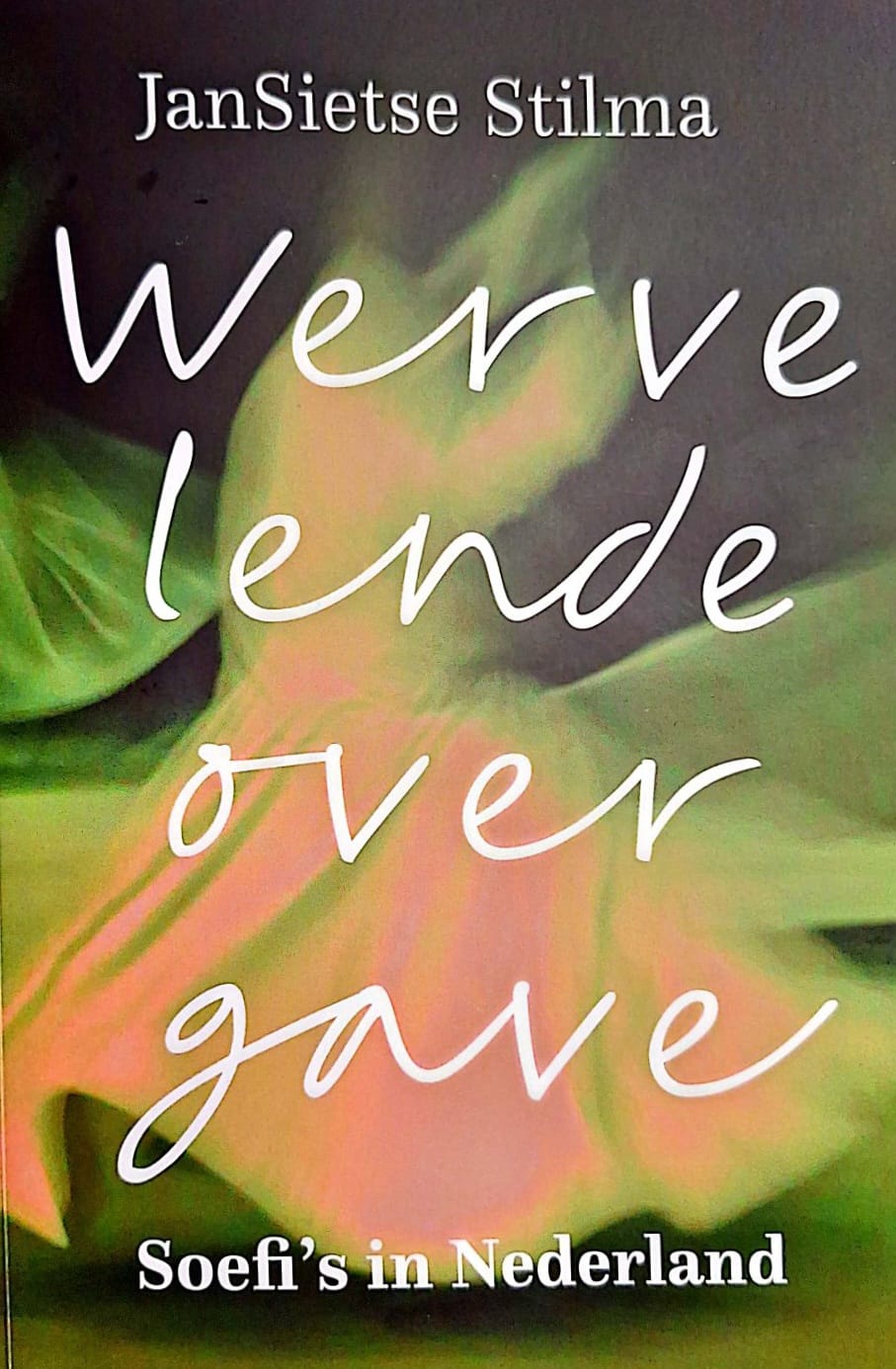
JanSietse writes: “Sipko den Boer has been profoundly moved by the mystical poems of the Sufi Rumi. On his website roemivandaag.nl, the following is mentioned. ‘For many years, he has been studying the writings of Rumi, and twenty years ago, he decided to translate the texts, including the didactic and lyrical poems and spiritual teachings of Rumi. Some contemporary mentors who have assisted and inspired him in this endeavor are William Chittick, James Morris, Kabir Helminski, Franklin Lewis, and Ibrahim Gamard. Over the past fifteen years, he has closely collaborated with a professional team of translators, teachers, artists, and especially musicians to bring together the various elements necessary to express the music and movement of Rumi’s poetry.’ During a Sufi class on Persian poets in Amsterdam, he met the Chinese-American Saki Lee, whom he later married at the Sufi camp in Switzerland. The marriage was blessed in the Alps by Vilayat Khan, the son of Inayat Khan. Saki is a murshida in the Inayati Sufi order, which has a branch in the Netherlands/Belgium. I met both of them in the summer of 2019.”
Biography
Sipko shared with me that he was raised in the Reformed Protestant tradition but had questions about the concept of God from an early age: could God be exclusively for the Reformed? In his late twenties, following a personal crisis, his journey led him to the Sufi center in The Hague. He was moved by the teachings of Inayat Khan and references to Persian Sufi poets such as Rumi. Armed with addresses from Ameen Carp (see photo), a publisher and Sufi, he embarked on a journey to Turkey to trace the footsteps of Sufism in Istanbul, Adiyaman, Sanliurfa, and Konya. Inspired by this trip, upon his return, he connected with Islamic Sufis in the Netherlands. Naqshbandi-Haqqani Sufis warmly embraced him into the Islamic faith community. This period allowed him to internally understand Islamic values and practices. However, he did not entirely feel at home there due to the emphasis on strictly adhering to orthodox Islamic practices, leaving little room for the heterodoxy and individuality of the mystical path.
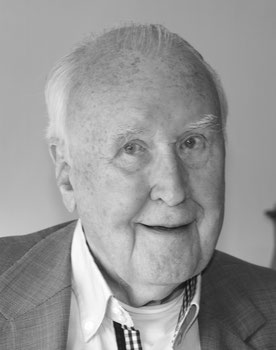
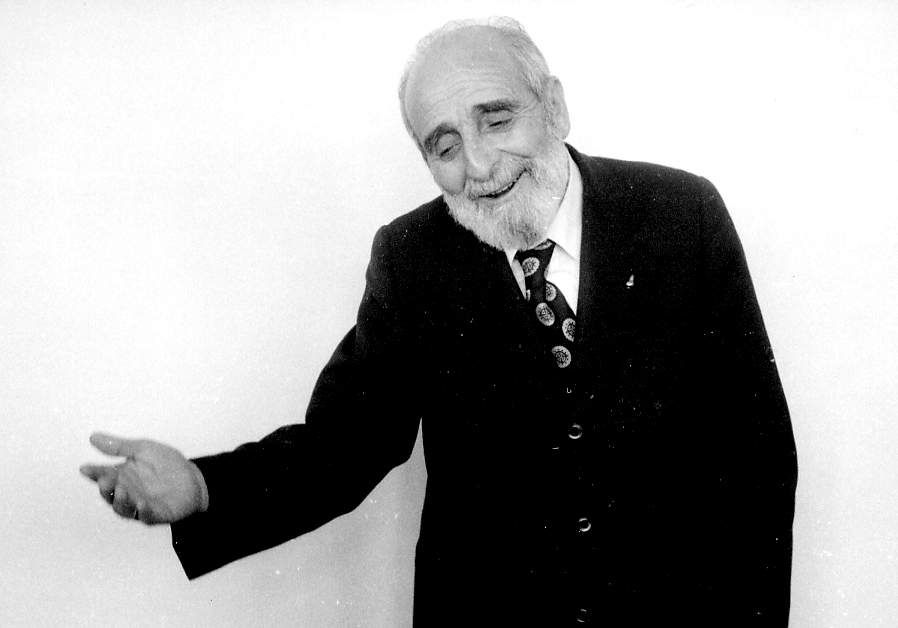
Later, Sipko encountered the Mevlevi Sufi order through an American disciple of Suleyman Dede (1904-1985), a senior Mevlevi figure from Konya. Despite his preference for the music of the Mevlevis, he was instructed as a disciple to practice the ritual of whirling prayer and study Rumi’s spiritual epic, the Masnawi. He became fascinated by the content, music, and whirling dances. A TV fragment from the Dutch television featured the whirling Sipko den Boer. Whirling requires training to avoid dizziness, but he found it a beautiful spiritual dance, where the sacred name Allah is remembered with each turn.
The Mevlevi Sufi order, founded by Rumi’s son Sultan Veled, had fragmented centuries later after the prohibition of Sufi orders. Celaleddin Celebi (1926-1996), the 32nd successor in Rumi’s lineage, attempted to restore it through the international Mevlana Foundation. Helminski serves as the sheikh of the Mevlevi Sufi order, residing in America and promoting Sufism through books, workshops, and music, along with his wife Camille Adams Helminski, who co-directs the Threshold Society.
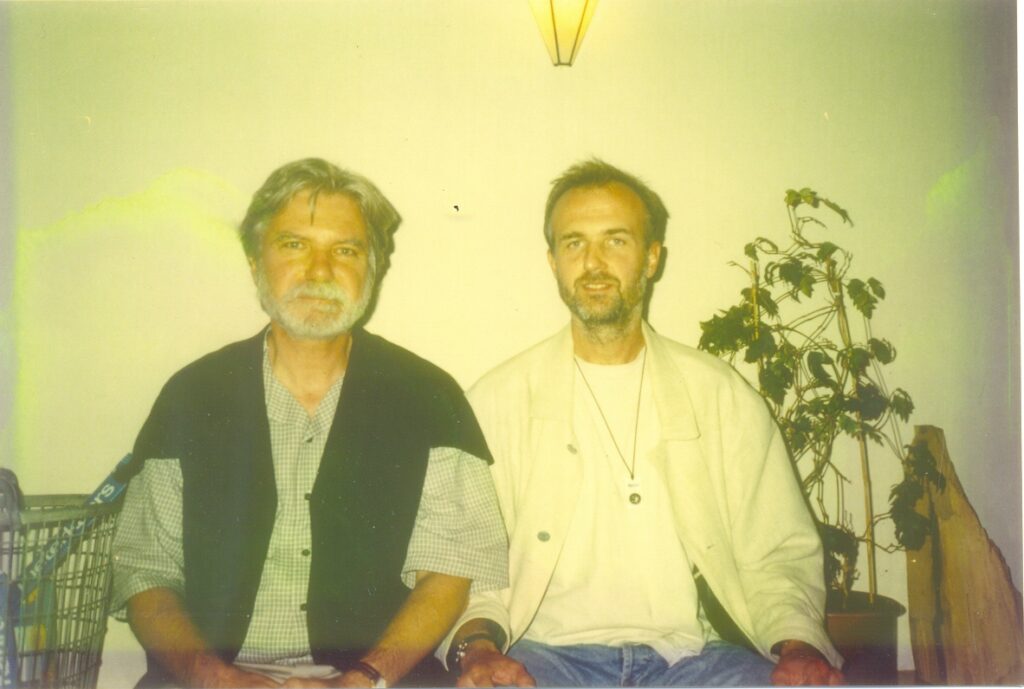
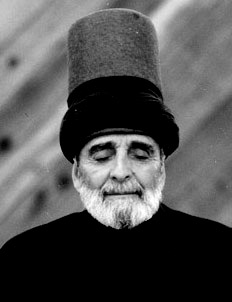
Sipko den Boer becomes the representative of the Threshold Society in the Netherlands. He translates various books for the Threshold Society, such as “Living Presence” (Levend Soefisme, 2004) and “The Knowing Heart” (Het Wetende Hart, 2002). However, he began to be disillusioned with the developments within this Sufi order when external influences (financial backers) brought Islamic practices to the forefront. “If someone stays in a group or organization for a long time, it often affects the ego (due to identification with the role played). Sufism is about letting go of the ego and unification with the divine,” he says. Leadership may be necessary, but it should not be dominated by fear, guilt, rules, supervision, or a one-sided administration. Leadership should be based on talents, generosity, abundance, social cohesion, individual responsibility, community spirit, and engagement. When the Threshold Society organized a pilgrimage to Saudi Arabia in 2010, Sipko stepped down as the representative. Breaking away from this group was not an easy task, but his practice of music greatly aided him. “When you break with your Sufi friends and your teacher, you are initially thrown back onto yourself, but it ultimately liberates you.”
Through his wife Saki Lee, Sipko den Boer becomes more involved with friends of the Inayati Sufi order in the Netherlands. This order shares many similarities with the international Sufi movement as both stem from the initiatives of Inayat Khan. Additionally, he has an ongoing project, “Music of Life,” where he organizes monthly benefit concerts on Sunday afternoons with his partner, aiming for “the awakening of consciousness for diversity; that we are connected beyond the boundaries of race, social class, culture, religion, and ego. It is our wish to bring inspiration, connection, and empathy to the world through music and artistic expression.”
Sipko den Boer’s life journey demonstrates that being a Sufi is a path, for him, from Reformed Protestant through the Muslim Mevlevi Sufi order to an independent Sufi thinker now. Sipko den Boer is a registered social worker and works as a professional mentor. In addition to translation, music-making, cooking, gardening, and writing, he operates independently in his own mentorship practice. Drawing from an eternal source of wisdom is crucial for him in his work.
Gatherings
On May 12, 2019, I attended a meditation session led by Sipko den Boer’s wife, Saki Lee. The gathering took place in the building of the international Sufi movement in The Hague, near the Peace Palace. Above the entrance, the Sufi symbol with the heart in the center is displayed.
There were 9 women and 2 men present, all sitting in a circle that adjusted as people entered later. Saki explained that the purpose of the meditation was to come closer to the unity of existence. She began with silence and then sang a song about the source of life, Mother Earth, accompanying herself on the guitar. She playfully referred to Mother’s Day and the fact that we are all connected because everyone has a mother. Moments of silence were interspersed with breathing exercises and singing. She invited us to join in singing:
- The Invocation: To the One, the perfection of love, harmony, and beauty. The Only Being, united with all enlightened souls who embody the Master, the spirit of guidance.
- God is Love, the Beloved, and the Lover (Ishq Allah Mah’bud Allah)
- Say: He, God, is One (Qul Huwa ‘llahu Ahad)
- Allahu (the inner sound of God). This is primarily a breathing exercise where the head is turned to the right and left.
These texts were repeated for minutes as a dhikr or zhikr. Saki invited the circle to join hands several times to form a circle of unity. She also encouraged following specific gestures, such as placing the right hand on the forehead, right shoulder, left shoulder, and on the heart. The heart holds a central place in the logo of the Inayati Sufi order.
After the meditation, there was a storytelling session by the Dutch Iranian Sahand Sahebdivani from the Persian Book of Kings. Sahand was the storyteller of the year in 2014. Fantastic musical accompaniment on the qanun was provided by Anastasis Sarakatsanos. This aligns perfectly with the goal of the Music of Life project: ‘the awakening of consciousness that we are connected beyond the boundaries of race, social class, culture, religion, and ego.’ The gathering concluded with a shared vegetarian meal brought by participants (potluck dinner).
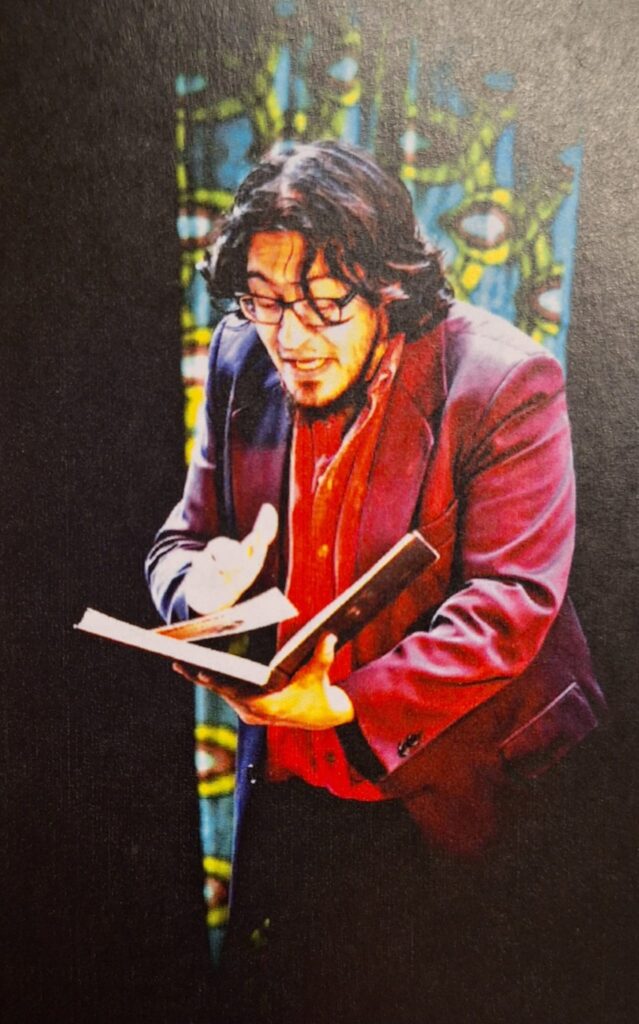
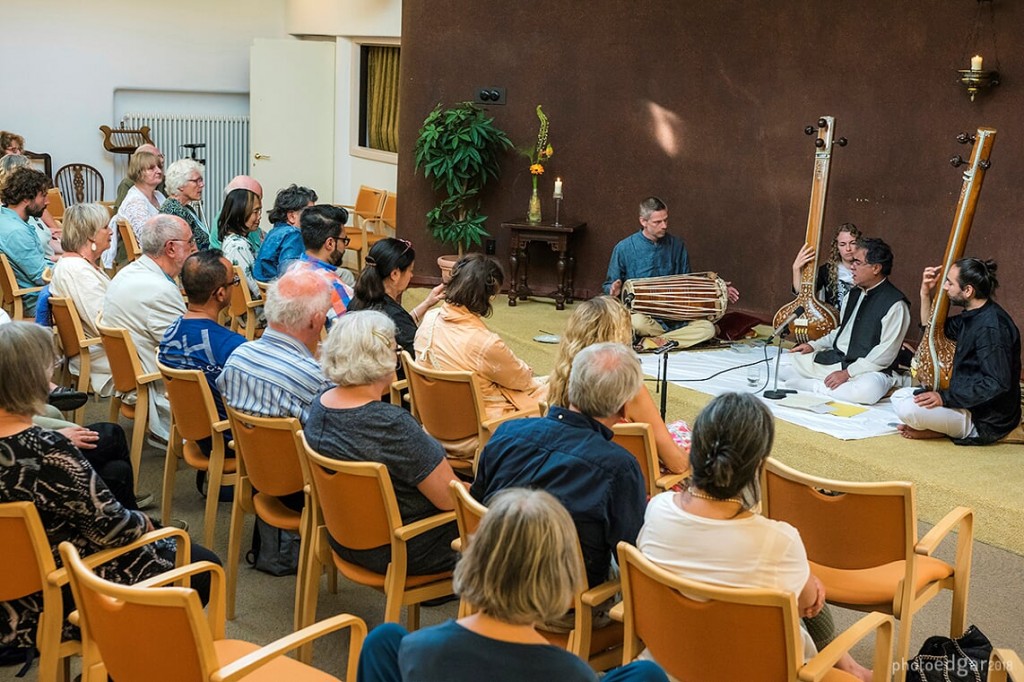
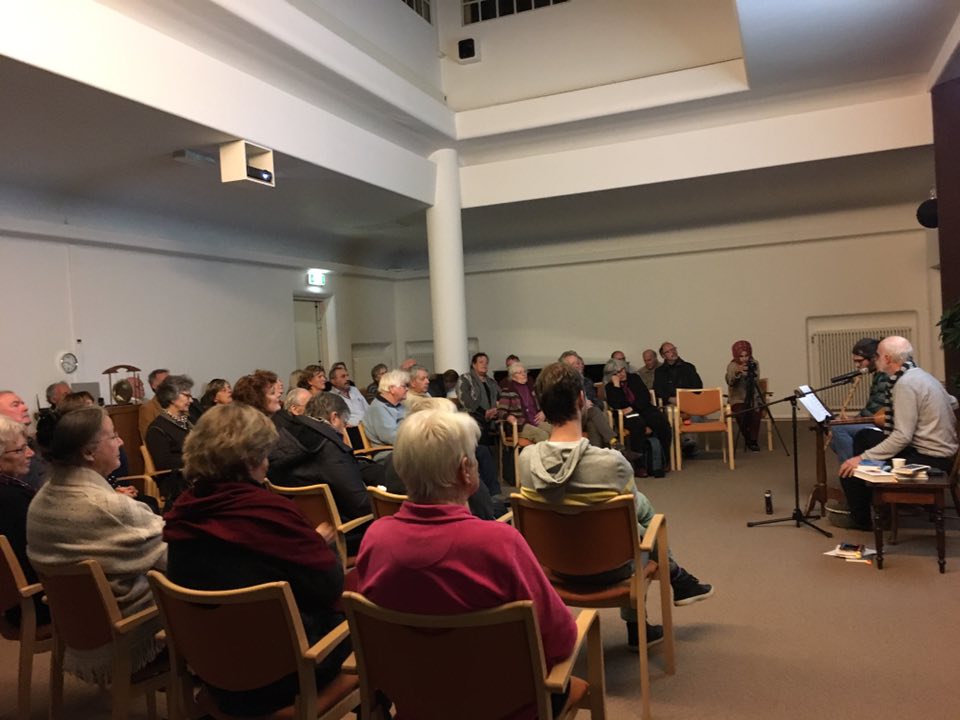
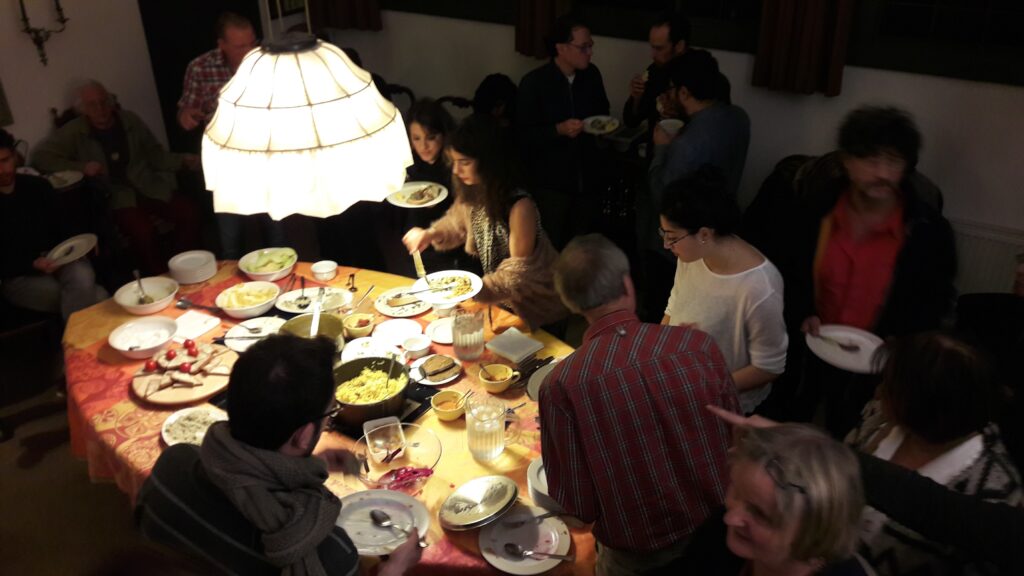
Sufi Beliefs
For Sipko den Boer, Sufism aligns with the description in “Living Presence.” “If there is anything that Sufism recognizes as the fundamental truth, it is that we are not separate from the divine — the unity of Being. We live in a time where the meaning of this truth is increasingly evident: emotionally, as our world becomes smaller through advanced communication and mobility, and intellectually, through developments in modern physics. We are one: one people, one ecology, one universe, one being. If there is one truth deserving of that name, it is that we are inseparable parts of the truth and not separate from it. When this realization dawns upon us, it influences how we approach life and how we see ourselves. In Sufism, the essence is to be moved by the flow of love that runs through all of life, the unity behind the forms.
If there is one method that is central in Sufism, it is the cultivation of presence and love. Only presence can awaken us from our addiction to the world and what we feel and think, and only cosmic love can encompass the divine. Love activates the highest function of the intellect because, without love, whether in a spiritual, artistic, social, or scientific context, nothing great is achieved.”
His connection to Islam used to be stronger; he used to observe Ramadan, but he no longer does so because he believes fasting is a way to reach unity and should not become an end in itself. Also, his wife noticed that he became moody during fasting. Regarding the relationship between Sufism and Islam, he agrees with Helminski, who says: “On the one hand, some say that true Sufism cannot exist without appreciation for and practice of the principles of Islam, while others more or less ignore the Islamic roots of Sufism and rely on Sufis further from the source, who may or may not have separated from explicit Islamic teachings. In my opinion, appreciating and understanding the Quran, the sayings of Mohammed, and traditional Sufism are invaluable for the traveler on the Sufi path.”
This is different from, for example, the Naqshbandi-Haqqani Sufi order, which emphasizes unconditional surrender to Allah and the Prophet Muhammad and includes ritual prayers. According to Sipko, one prayer with attention is more valuable than 100 ritual prayers.
Visits to the tombs of Rumi and Shams of Tabriz in Konya and later to the dargah of Inayat Khan in Delhi were deep, reflective experiences for him, confirming the spiritual connection and revealing the secret of the path as it presents itself.
He never reached a point where he could share these profound experiences with his Protestant Christian family. “Although the church and daily religious practice are no longer at the forefront, people prefer to hold onto their own beliefs. At least, four uncles (one maternal uncle) and my paternal grandfather were ministers by profession. On the internet, I recently discovered that my grandfather wrote several books under the pseudonym D.I.A. Gnosis, and titles under his own name — Rev. L.S. (Lieven Stoffel) den Boer — included titles like “On the way to the wedding” and “A knot untied and tied again.” At my father’s funeral (February 6, 2021), I heard in a speech that my grandfather belonged to a pietistic, Calvinistic movement of the Christian faith, emphasizing the personal experience of the doctrine of faith, while simultaneously infused with moralism and dogmatism, which, when sufficiently internalized, governs the person from within, from a mold. It’s very likely that the children of my grandfather grew up with the suffocating feeling that one cannot escape the watchful eye of a stern God. The need to escape from that would have been no less. During my father’s funeral, a psalm of David (Psalm 139) was read that he himself had chosen for the service. The first verses go like this: “Lord, you have searched me, you know me. You know when I sit and when I rise; you perceive my thoughts from afar. Whether I go forward or lie down, you are aware of it; you have familiarized yourself with all my ways […].” In other words, the discreetly Hidden One guides you through the darkness to the light. For me, the personal experience of spirituality takes precedence, as long as it connects you with your deeper core, your life path, the ecosystem, and the people around you. It is essential that your own spirituality, through wonder, shapes itself towards that rediscovered light. “Everything is set in motion by love […].” The psalm of David reminds me of a passage from Rumi’s Masnavi I, 1509 et seq.: “When we are ignorant, that is its prison, and when we come to knowledge, that is its palace. When we fall asleep, we are its drunkards, and when we awaken, we are in its hand […].” An encouraging, reconciling, and comforting message.
Sipko comes into contact with various forms of spirituality, faith, and worldview at a young age and has forged his own Sufi path.
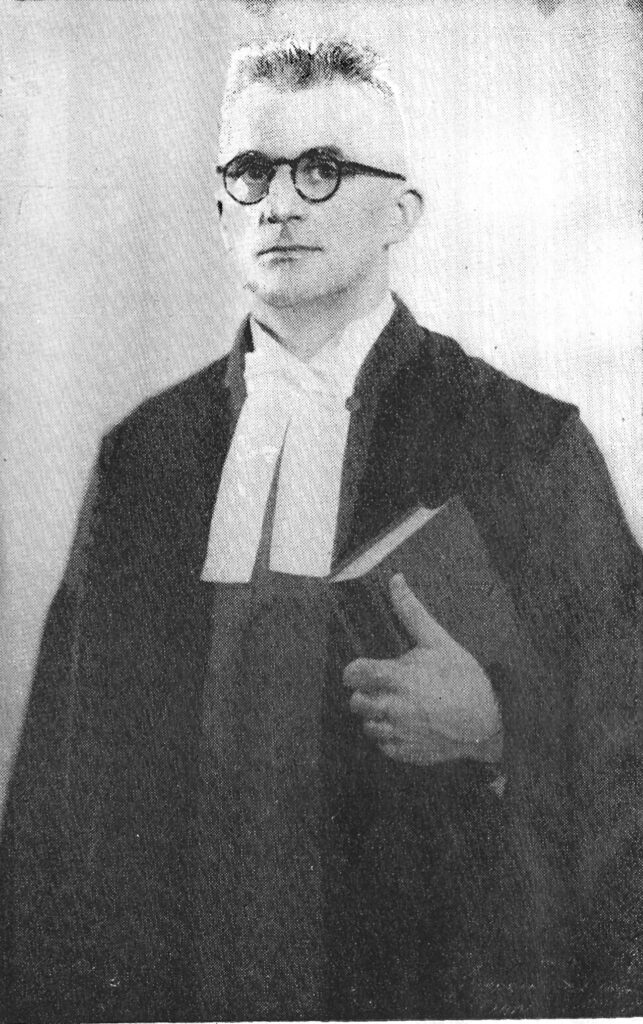
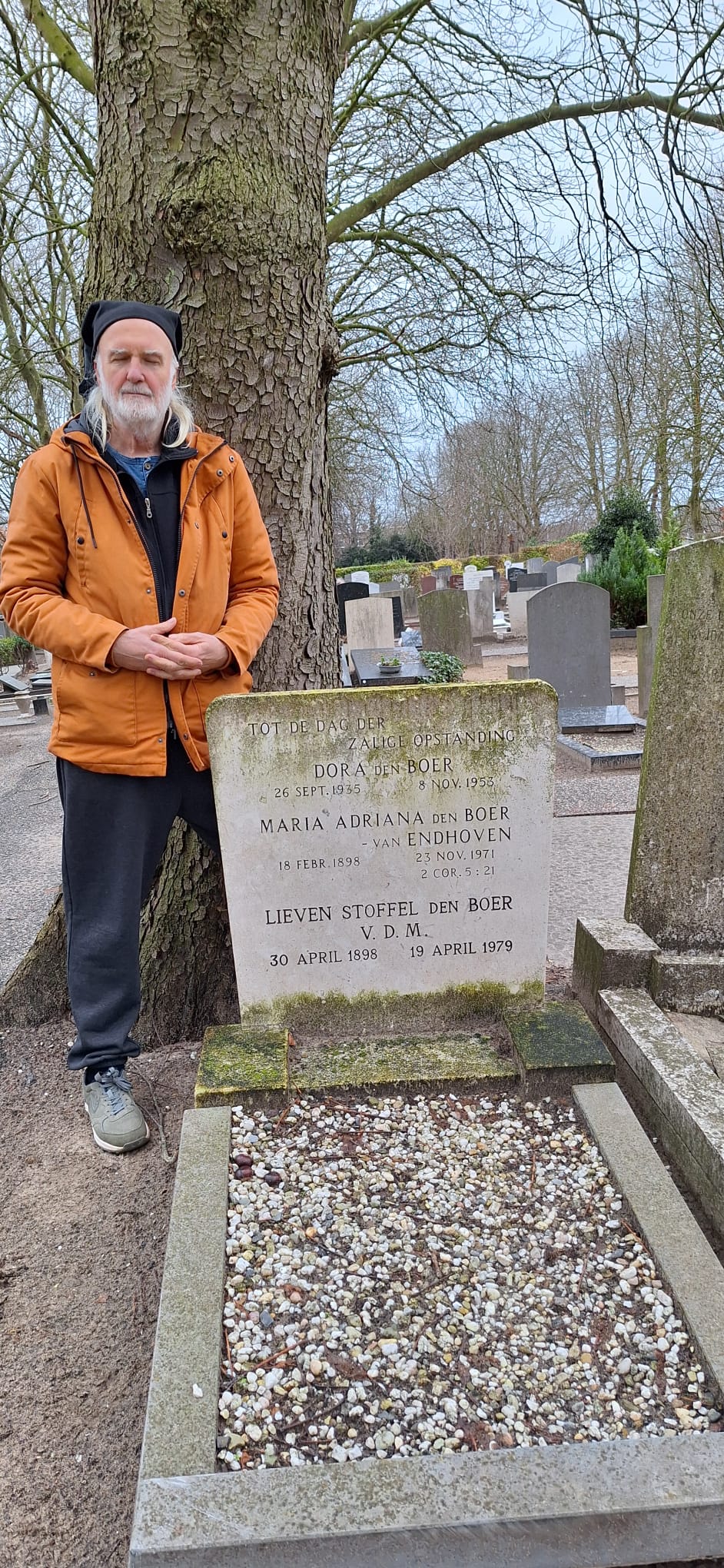
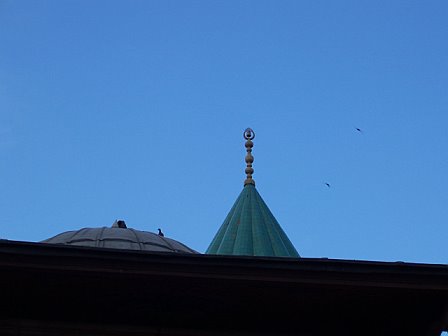
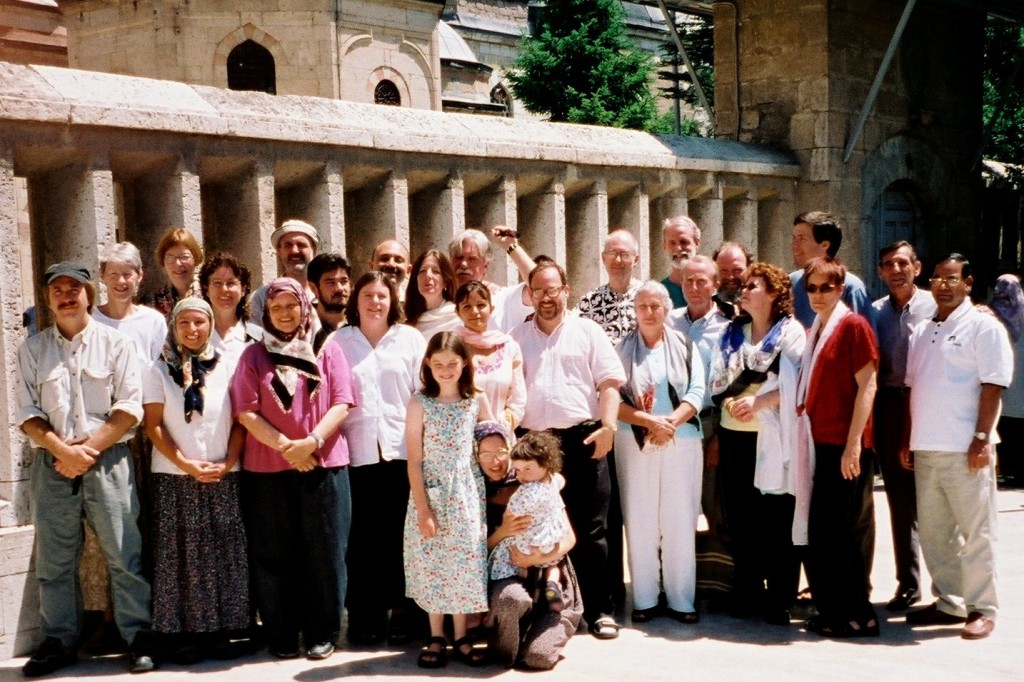
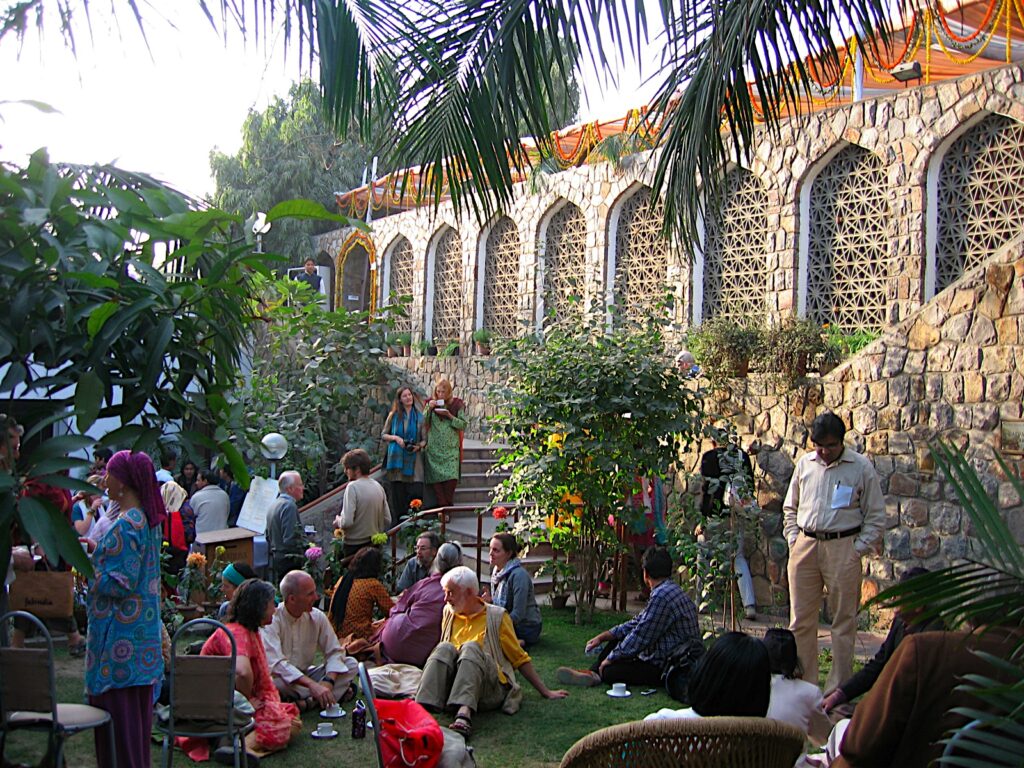
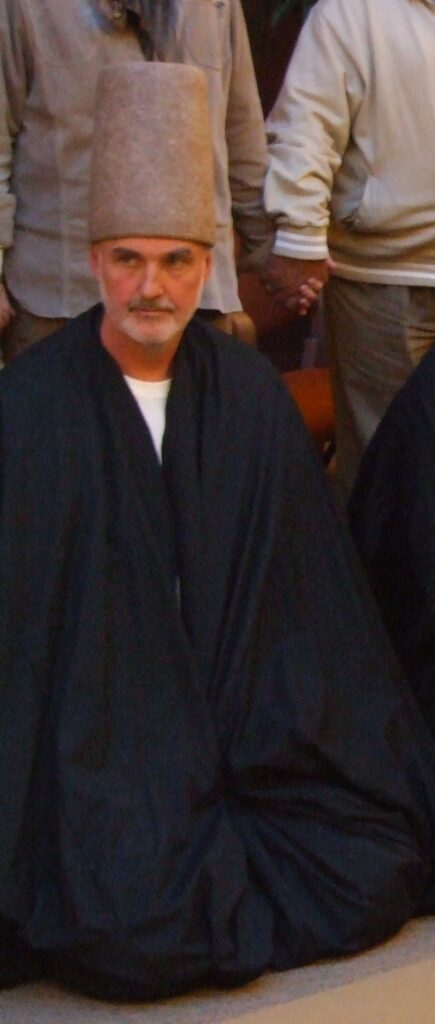
Social Engagement
The Inayatiyya Sufi Order is involved in a social project for the poor in Delhi, India called The Hope Project. This project was initiated by Pir Vilayat Inayat Khan (eldest son of Inayat Khan) and is supported by the Netherlands. The project includes education, healthcare, and skills training for women to enable them to support themselves independently.
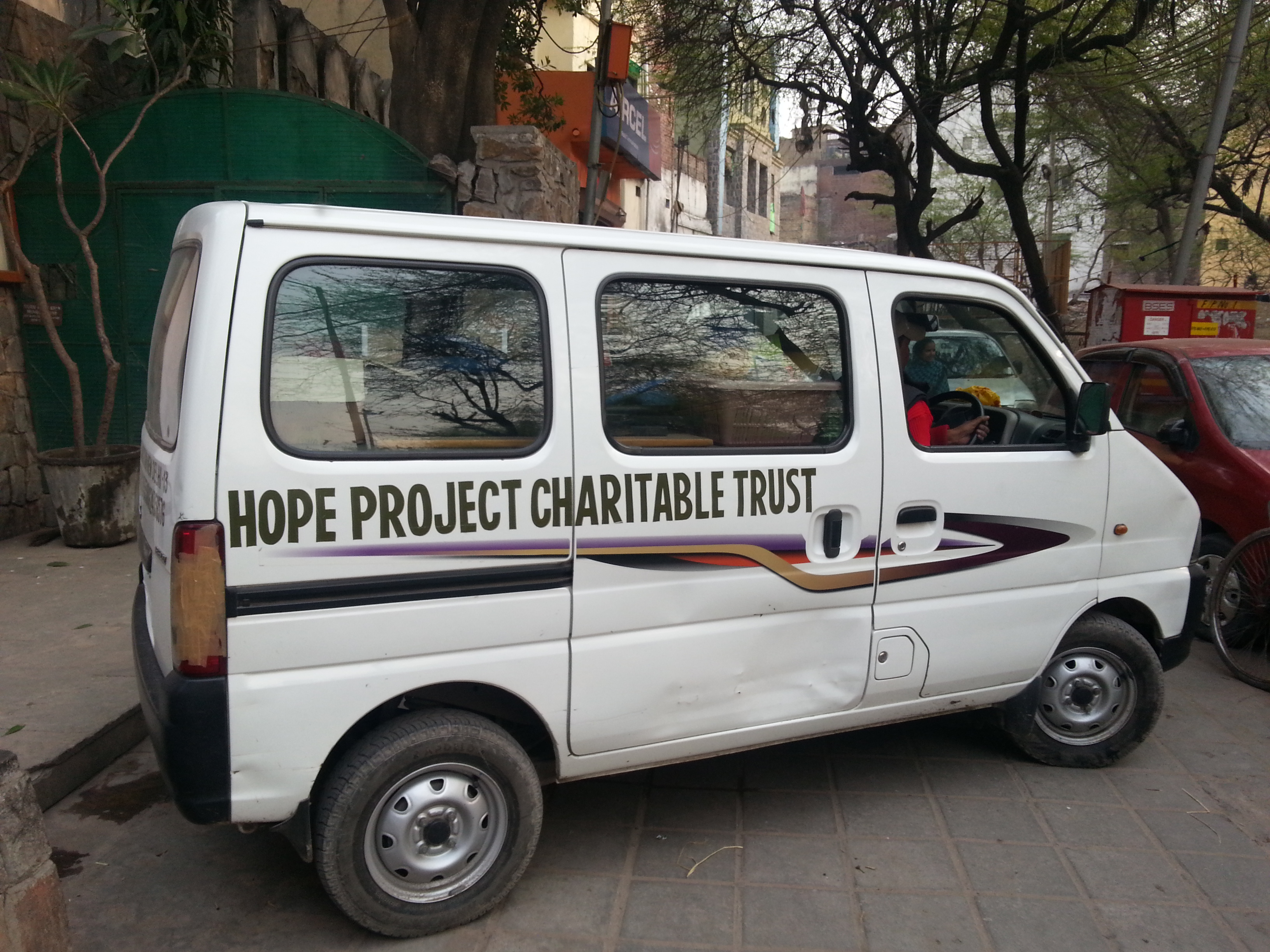
Books
Among the books translated by Sipko are anthologies from Rumi’s didactic poem, the Masnavi, his collection of quatrains and odes, Diwan-e Shams, and mystical poetry in a diary, “Rumi, day by day (Roemi van dag tot dag).” He has also translated works by Rumi’s teacher, Shams of Tabriz, and the Persian poet Hafez. The original publisher, Synthese, declared bankruptcy in 2012, and reprints are now published by Melinda Publishers.
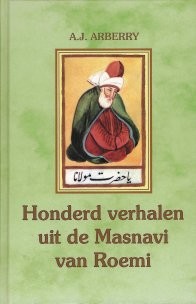
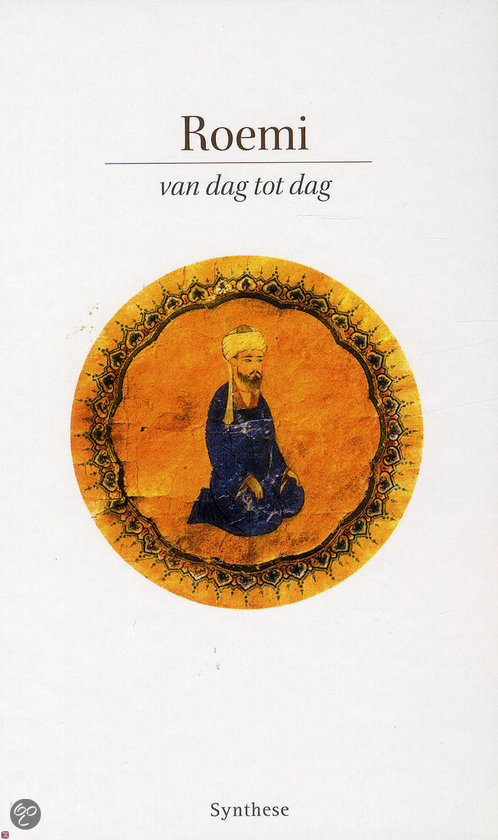
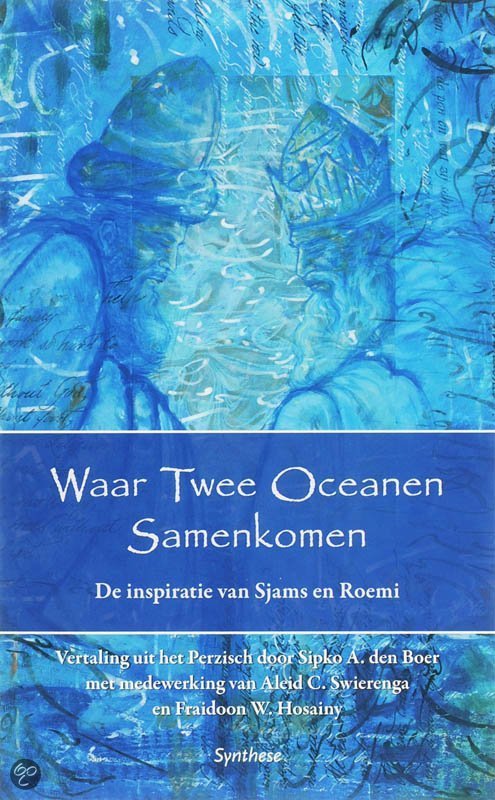
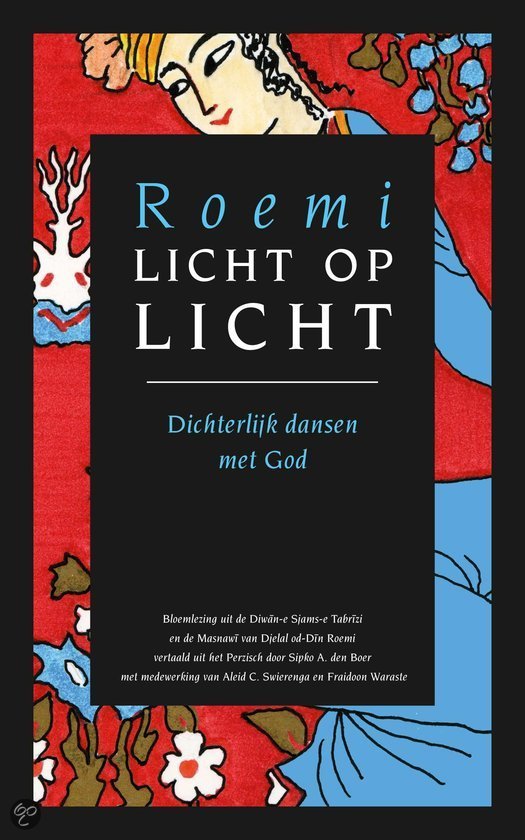
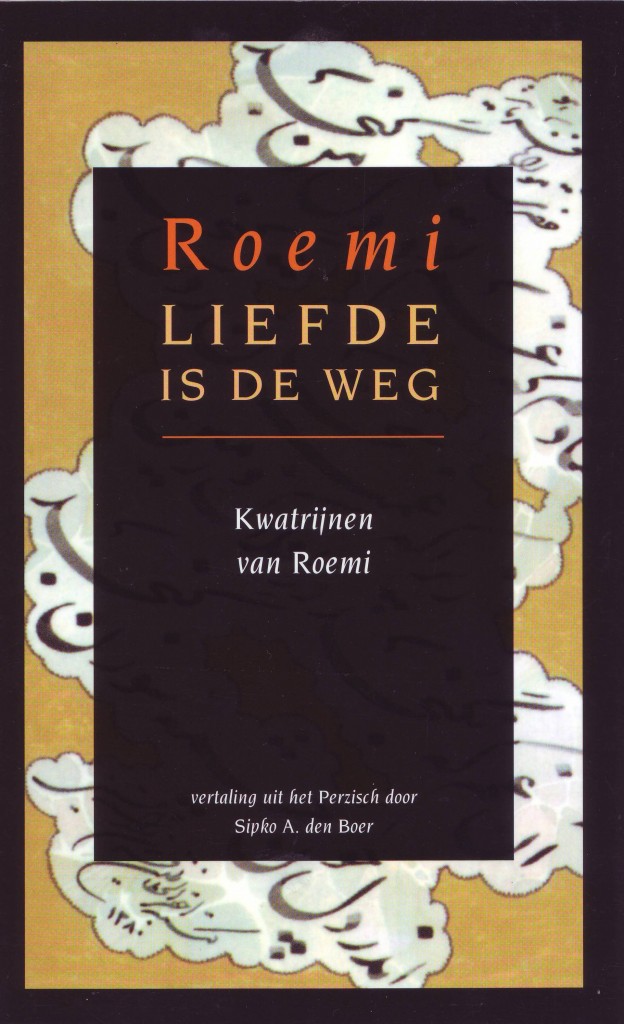
The book “Living Presence” by Helminski has chapters with titles such as: presence, the power of being, the essential self, listening from within, dying before you die, and we become what we love. Presence is the point where the world of the senses and the world of the spirit intersect. Jack Kornfield, a mindfulness trainer, describes this book as ‘A heartfelt modern illumination of the Sufi path, filled with the fragrance of the ancients.’
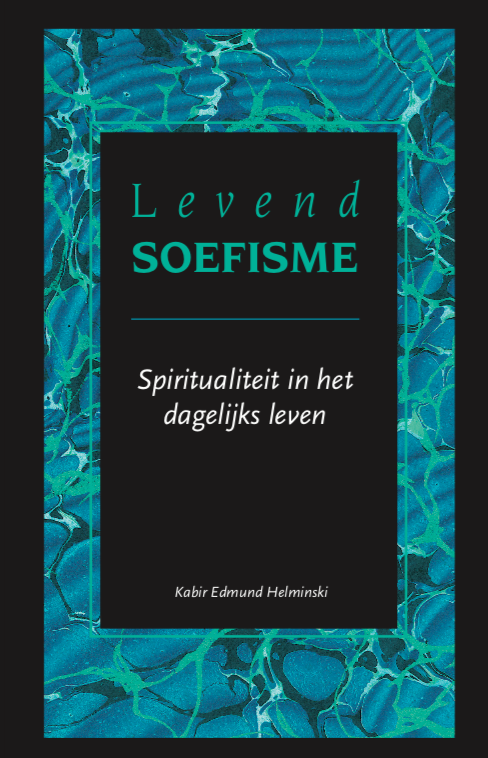
In summary, Sipko den Boer has become a dedicated Dutch Sufi after a Protestant upbringing. He is actively involved in writing and translating (Rumi, Shams, and Hafez), making music, giving lectures, and performing the whirling dance. His views on Sufism align closely with the international Inayati Sufi movement.
- Wervelende Overgave, Soefi’s in Nederland, JanSietse Stilma, Kampen 2023 ↩︎
